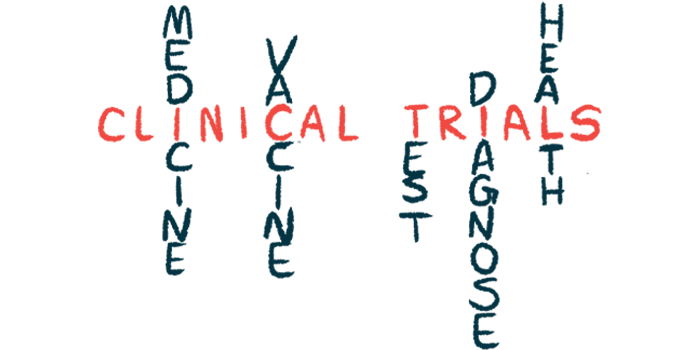Buntanetap Shows Efficacy, Supports Soon-to-open Phase 3 Study

Buntanetap, Annovis Bio’s investigational oral treatment for neurodegenerative diseases, was safe and showed effectiveness in people with early-stage Parkinson’s disease, a presentation of Phase 2 trial data showed, paving the way for Phase 3 testing in a larger patient group.
The U.S. Food and Drug Administration recently gave the go-ahead to a soon-to-open Phase 3 trial in up to 450 people with early-stage disease, and the company announced plans for a similar study in those with more advanced Parkinson’s.
Annovis discussed Phase 2 trial data at the Alzheimer’s Association International Conference 2022, in the presentation “Translational Inhibition of Multiple Neurotoxic Proteins Leads to Improved Motor Function in Parkinson’s Disease.”
Buntanetap, previously known as ANVS401 or posiphen, is being developed for neurodegenerative conditions including Parkinson’s and Alzheimer’s disease.
It works by selectively inhibiting translation, the process by which information in DNA is converted to produce proteins. In doing so, it aims to lower levels of certain proteins that form insoluble, toxic clumps in the nerve cells of people with these diseases.
Such proteins include alpha-synuclein, which forms toxic aggregates in Parkinson’s, and beta-amyloid and tau, whose accumulation are Alzheimer’s hallmarks and can be “detected” in Parkinson’s patients, Annovis noted in its presentation.
New Parkinson’s clinical trial testing 2 doses
The two-part, dose-finding Phase 2a study (NCT04524351) opened with 14 people with Parkinson’s and 14 with Alzheimer’s randomly assigned to buntanetap (80 mg) or a placebo given once daily for 25 days.
Interim data from this first trial part showed that buntanetap led to improvements in motor performance, including speed and coordination, among the nine Parkinson’s patients who received the treatment.
In its second part, an additional 40 early-stage Parkinson’s patients were randomized to buntanetap daily at either 5, 10, 20 or 40 mg — or to a placebo capsule — for 25 days.
Across the trial, buntanetap led to improvements in the MDS-Unified Parkinson’s Disease Rating Scale (MDS-UPDRS) overall score, a measure of disease severity, compared with the placebo group, the presentation noted. Annovis reported previously that significant gains in MDS-UPDRS overall scores and several subscales were seen among patients treated at 10 or 20 mg.
Overall, best clinical outcomes were in patients given in buntanetap at doses of 10 or 20 mg, the presentation’s researchers wrote.
Buntanetap at 5, 10 or 80 mg also improved cognitive skills over the study’s 25 days of treatment, compared to placebo patients, as measured by the Wechsler Adult Intelligence Scale (WAIS) coding test. These WAIS scale gains, seen at each of those doses, were previously reported to be significant.
According to Annovis, buntanetap also showed an ability to lower levels of toxic proteins, improve nerve cell integrity and communication, and reduce inflammation in Parkinson’s patients.
Treatment safety has now been demonstrated in more than 200 people, from healthy volunteers to Alzheimer’s and Parkinson’s patients, the presentation noted.
The soon-to-open Phase 3 trial (NCT05357989) will evaluate oral buntanetap — at 10 or 20 mg — against a placebo for six month in up to 450 adults, ages 40 to 85, with early Parkinson’s. Study sites have not been announced, but contact information is available for people interested in taking part.
The study’s primary goal is to assess changes in MDS-UPDRS part II and III scores, which evaluate activities of daily living and motor function, over six months of treatment. Safety and tolerability are also primary goals.
Secondary goals include total MDS-UPDRS scores and Participant Global Impression of Change (PGIC), which considers patient views of treatment efficacy.
The potential therapy has shown an ability to restore full function in seven different animal models of neurodegenerative diseases, including Parkinson’s, Annovis also reported.







